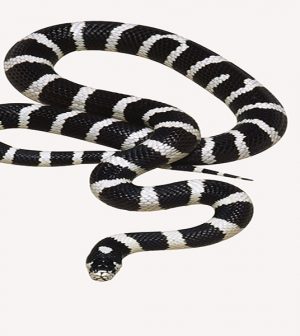- Could Your Grocery Store Meat Be Causing Recurring UTIs?
- Are You Making This Expensive Thermostat Error This Winter?
- Recognizing the Signs of Hypothyroidism
- 10 Strategies to Overcome Insomnia
- Could Artificial Sweeteners Be Aging the Brain Faster?
- Techniques for Soothing Your Nervous System
- Does the Water in Your House Smell Funny? Here’s Why
- Can a Daily Dose of Apple Cider Vinegar Actually Aid Weight Loss?
- 6 Health Beverages That Can Actually Spike Your Blood Sugar
- Treatment Options for Social Anxiety Disorder
Creepy Creatures Can Be Medical Marvels, Too

Creepy crawlers like leeches, maggots, snakes and ticks might make you squeal in fear or disgust, but they could save your life.
All of them protect one thing people can’t live without: blood. And that means they have a role to play in modern medicine, according to the American Society of Hematology.
Leeches have a substance in their saliva called Hirudin that helps prevent blood clots in microsurgical procedures. Doctors use them to maintain blood flow to surgical sites. Without leeches, blood would pool in tissue, which could lead to disfigurement. Leeches have also been used around the world to remove blood from patients.
Ticks and mosquitoes also have useful saliva that could be important in development of naturally derived blood thinners (anticoagulants).
Maggots, meanwhile, are used to clean some types of wounds. Disinfected maggots are placed into a wound to eat dead tissue and aid healing.
Different types of snake venom are also beneficial.
Some snakes, especially vipers, produce venom that helps blood clot and can be used to monitor drug intake. When doctors give patients a blood thinner derived from leeches, adding some viper venom to a blood sample reveals how long blood takes to clot. If it takes too much time or too little, doctors say they can adjust the dose.
More information
The American Heart Association has more on anticoagulants.
Source: HealthDay
Copyright © 2026 HealthDay. All rights reserved.










